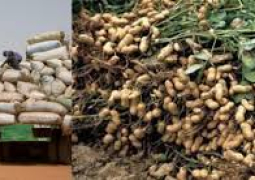
Speaking on low productivity and the need to introduce irrigation across the country for year-round farming, Minister Sabally explained that among the causes of low productivity is the infertility of the soil. He said The Gambia's soil fertility has decreased over the years while adding that other reasons include low-yield seeds; and the size of the farming communities where most of them are women and rural people that are not technologically equipped with smallholder farmers cultivating one hectare or 1.5 hectares.
“As a government, we make sure that fertilizer is available, though there is a lot of discussion about price affordability but at least made it available. We also supply rice and maize seeds for free and it is high yielding.”
In increasing rice productivity, he stated that the latest rice variety his ministry is trying to introduce from the Koreans is going to earn the country 10 tons per hectare which is 150% increase in productivity.
Currently, he said, the variety they have on the field is at 4 tons per hectare while stating that they are also working on mechanisation, irrigation and technology transfer.
“Currently, the regional rice value chain has an open tender for land preparation, which will be around 400 plus hectares that will be prepared and irrigated this year. Next year, in conjunction with the Koreans, 1, 000 hectares in Central River Region (CRR) north will be irrigated to produce year-round.
On trending news that The Gambia has sufficient onion and can supply our neighbouring countries but due to lack of storage it was to no avail, minister Sabally reiterated that The Gambia consumes about 13, 000 tons of onion per year while producing about 2, 500 tons.
He, however, stated that his ministry has plans of building storage facilities across the country and started with three. He said that the storage systems will help to mitigate post-harvest waste of onion, especially for our women farmers.





